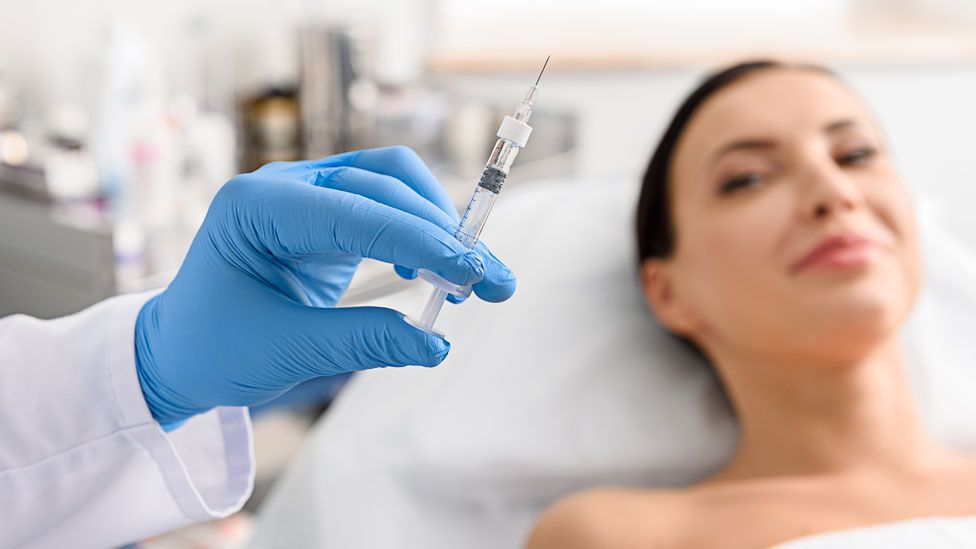Mental Health: Tougher checks before Superdrug Botox
- Published

High street retailer Superdrug is to introduce tougher mental health checks before performing cosmetic procedures, following criticism by the NHS.
Prof Stephen Powis, the medical director of NHS England, said the injections risked fuelling mental health disorders - and the health service was left to pick up the pieces.
Superdrug started offering Botox and dermal fillers last year.
The retailer said it was "fully committed" to the issue.
High Street procedures
- Botox is an injection of Botulinum toxin that relaxes muscles to temporarily hide lines and wrinkles
- Dermal fillers are injections under the skin that can fill skin creases or lead to bigger lips
NHS Choices: Botox and Dermal fillers
Superdrug's Skin Renew Service offers the cosmetic procedures to people over the age of 25, surgeons have criticised the company for treating Botox and fillers as "casual beauty treatments" on a par with having a wax.
The NHS is concerned about the impact on people who are mentally ill, including with Body Dysmorphic Disorder (BDD), in which people are fixated on what they think are flaws in their appearance.
The BDD Foundation says body dysmorphia can be a crippling illness and severely impair someone's life.
Prof Powis wrote to Superdrug's chief executive, saying the company could do more to protect people who were seeking treatment because they were mentally unwell, or might have a mental health disorder triggered by treatment.
Prof Powis said: "Pressures on young people's mental health are greater than they ever have been, with families and the health service too often left to pick up the pieces.
"The lack of tough checks on cosmetic surgery means that the public is dependent on businesses taking voluntary steps to get their house in order, leaving people avoidably exposed to dangerous practices."
Superdrug said it already performs an hour-long consultation before cosmetic procedures take place and these include a mental health assessment.
The company said it would now ask specific questions about Body Dysmorphic Disorder: "We remain fully committed to including recommended protections for mental health. We met with the NHS to ensure we have the highest safety standards and quality of patient care."
People fixate
Alana, who has BDD, told Radio 4's Today programme that prior to being treated for the condition she would "beg and plead" with her parents to access plastic surgery and cosmetic procedures.
The 22-year-old believes that it would have been a "real issue" for her if these procedures had been available on the high street at the time.
Kitty Wallace, a trustee with the BDD Foundation, said fewer than 10% of patients with BDD were satisfied with the results of their cosmetic procedures.
She said: "It is important that these measures are in place to protect such individuals from potentially damaging and unnecessary procedures.
"Although their anxiety might reduce temporarily, they will often find themselves fixating on another part of their body that they want to change.
"We commend that Superdrug will be screening for the disorder, and referring people who are positive to their GP and Mind."
The foundation has its own questionnaire, which asks questions about how much people fixate on their appearance and how much it affects their day-to-day life.
- Published5 December 2018
- Published15 August 2018